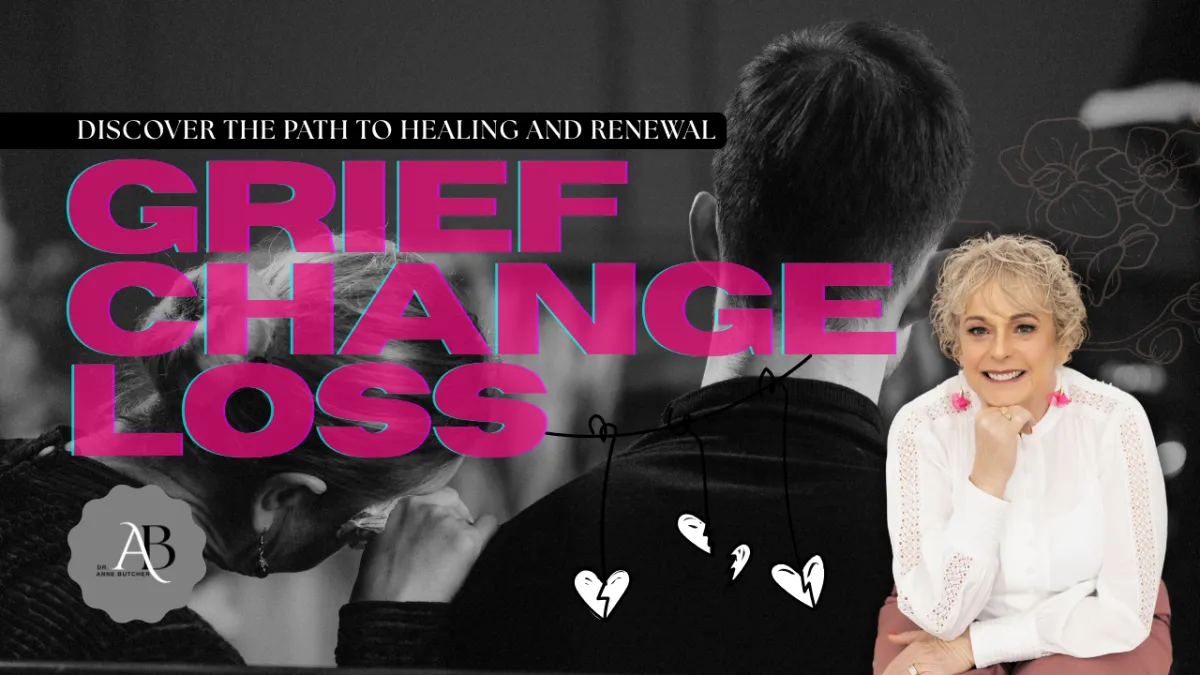
Healing After Grief, Change, or Loss, And How To Navigate Your Way Through
Grief, change, and loss are powerful forces that can shake the very foundation of your life. They aren't just experiences we endure, they are moments that can shape who you are. Losing a loved one, the end of a relationship, or even moving to a new place can throw you of balance and out of equilibrium. But even through the haze of these challenging times, there is an opportunity for growth and transformation.
Embracing Grief, Change and Loss With an Open Heart
Loss is a multifaceted experience and can feel like a dark shadow has been thrown across your world, obscuring your view and changing your path. While it often signifies the passing of a loved one, it can also emerge from other life changes that disrupt our daily routines. Each transition, whether it’s a career change, the end of a relationship or relocating to a new city, has its own sense of mourning. As you process these changes your body and mind work tirelessly to adapt to the new normal, which sometimes resulting in disturbed sleep, loss of appetite, weight fluctuations, and headaches.
The Journey Through The 5 Stages of Grief
Many believe that the grieving process is a linear path, moving through each stage in order - but the reality is far more nuanced. Grief isn't one clearly marked path - it can be a series of hills and valleys to move through. The five commonly recognised stages of grief are:
Denial: An initial refusal to accept the reality of the loss.
Anger: Intense feelings of frustration and helplessness.
Bargaining: An attempt to negotiate or compromise with reality.
Depression: Deep saddened reflection as the loss becomes harder to ignore.
Acceptance: Finally coming to terms with the loss, paving the way for healing.
but it's not a definitive.
These 5 stages are not necessarily experienced in a specific order and many people move back and forth between the stages. Some people find solace within months; for others, the process can take years.
Impact of Loss on the Body and Mind
When grief and loss are knocking on your door, it can affect us emotionally, but it can also manifest physically. The disruption in life that follows any major loss can affect our well-being in various ways:
Physiological Effects
Common physical effects include disturbed sleep, appetite changes, weight fluctuations, and headaches. These symptoms often reflect the body’s struggle to maintain balance while being in a state of emotional turmoil.
Physiological Effects
On a psychological level, the impact can be profound. Loss of a significant person or a crucial change in one’s life can lead to feelings of isolation, sadness, and even depression. Recognising these responses as natural parts of the grieving process helps us understand we are on the path towards healing.
Finding Your Path to Healing and Renewal
Understanding that grief, change, and loss are not limited to one type of event can help you approach healing with a broader perspective. Below are some strategies to help you through this painful journey:
1. Acknowledge Your Emotions
Allow yourself to feel, without judgment. Your emotions are valid, so give them time and space to breathe. Reflect on what you’re feeling—whether it’s anger, sadness, or a sense of disbelief—and write it down in a journal. This self-reflection can help you navigate your emotional landscape.
2. Build a Support Network
Talking about your loss is one of the most effective ways to process your emotions. Reach out to trusted friends, family members, or me, if you need a compassionate ear. Sharing your story not only eases the burden but can help you find strength and courage and help you feel supported as you heal.
3. Embrace Change as a Catalyst for Growth
Every challenge and change is a natural part of life that offers an opportunity to grow. Whether it's a new job, house, or relationship each fresh start is an opportunity to redefine and strengthen who you are. Embrace these moments and use them as stepping stones to build a promising new future.
4. Prioritise Self-Care
Caring for your body and mind is paramount. Engage in activities that nourish your spirit—exercise, meditation, or a hobby. Self-care helps reinforce your inner strength, so balance times of reflection with moments of relaxation and self-love. Healing isn't a destination, it's an ongoing process that requires patience and proactive care.
5. Allow Yourself Time
There is no fixed timetable for healing - and there's no rush to the reach the finish line. Every person moves through the stages of grief at their own pace. Whether your journey is swift or prolonged, give yourself permission to heal in your own time. True healing arises when you stop rushing to “get over it” and start embracing your path, however winding it may be.
Transforming Loss into Renewal
While grief, change, and loss are inevitable parts of life, within the pain of these experiences lies an opportunity for profound growth and transformation. By acknowledging the many layers of loss, the individuality of the grieving process, and by embracing healing strategies, you can pave the way to renewal and balanced.
If the weight of grief feels too heavy to bear, reach out. Remember, you don’t have to let grief define who you are today; there is always a path toward healing, and hope.
Your healing journey matters.
